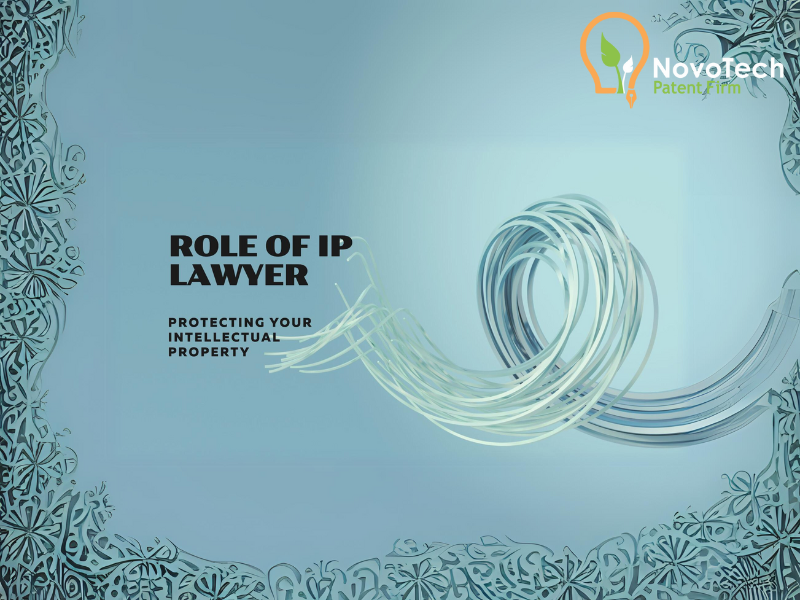
What is the Role of an IP Lawyer?
By Babak Akhlaghi on July 1, 2024. In the world of innovation and creation, protecting your intellectual property (IP) is as important as the creation itself. Whether you’re an inventor, an artist, a startup, or a multinational corporation, your ideas and creations are valuable assets that can be legally protected. This is where an IP lawyer comes into play. In this article, we’ll explore the definition, roles, and importance of IP lawyers, and we’ll compare them with patent attorneys to clarify common misconceptions.
What is an Intellectual Property Attorney?
An intellectual property attorney, also known as an IP attorney or intellectual property lawyer, specializes in managing legal issues related to IP rights. These rights include patents, copyrights, trademarks, and trade secrets, which are all pivotal elements in safeguarding your creative works and innovations.
So, what is an IP attorney’s role? Intellectual property attorneys guide their clients through the complex web of IP laws, ensuring that their inventions, literary and artistic works, symbols, names, images, and designs are fully protected under the law. They also help in enforcing these rights in cases of infringement.
Key Responsibilities of an IP Lawyer
by Abbie Parks (https://unsplash.com/@ioannemos)
The responsibilities of an intellectual property lawyer can be diverse and challenging. Here is a snapshot of what their job typically involves:
- Conducting IP Audits: Analyzing a client’s assets to determine what needs to be protected and how.
- Filing and Prosecuting IP Applications: Preparing and submitting applications for patents, trademarks, and copyrights, and navigating the application process.
- IP Litigation: Representing clients in court or before a tribunal to enforce or defend IP rights.
- Advising on IP Strategy: Providing strategic advice on how to manage and leverage IP assets effectively.
- Negotiating IP Agreements: Assisting in the negotiation of licenses, non-disclosure agreements, and other contracts involving IP.
- IP Valuation and Monetization: Helping clients understand the value of their IP and how to monetize it.
IP Lawyer vs. Patent Attorney
There’s often confusion between the roles of intellectual attorneys and patent attorneys. While both are involved in the realm of intellectual property, there are distinct differences:
- IP Lawyer: Covers a broad range of IP issues, including all types of IP rights. They are not necessarily authorized to file patent applications unless they have passed the patent bar exam.
- Patent Attorney: Specializes in patent law and is qualified to advise on patentability, draft patent applications, and represent clients before the United States Patent and Trademark Office (USPTO).
Simply put, all patent attorneys can be considered intellectual property lawyers, but not all IP lawyers are patent attorneys.
How to Become an Intellectual Property Lawyer?
by Gabriella Clare Marino (https://unsplash.com/@gabiontheroad)
The path to becoming an IP attorney involves a combination of education, skills, and licensure:
- Education: Obtain a bachelor’s degree, often in a technical field if you aim to become an intellectual patent lawyer. Then, earn a law degree from an accredited law school.
- Skills: Develop a strong understanding of IP law, excellent communication skills, analytical thinking, and attention to detail.
- Licensure: Pass the bar exam in the state where you wish to practice. If you want to become a patent attorney, you must also pass the USPTO’s patent bar exam.
Finding Intellectual Property Law Services Near You
When searching for an “intellectual attorney” or “intellectual property law near me,” consider the following tips:
- Research: Look for attorneys with strong credentials and experience in your specific industry or area of creation.
- Check Reviews and Testimonials: Read what previous clients have to say about their services and outcomes.
- Schedule Consultations: Meet with potential lawyers to discuss your needs and gauge their expertise.
- Evaluate Communication: Choose an attorney IP who communicates clearly and understands your goals.
The Global Perspective: International IP Lawyer
by Iñaki del Olmo (https://unsplash.com/@inakihxz)
Intellectual property is not confined by borders, and in our interconnected world, protecting IP internationally is often necessary. An international IP lawyer has the expertise to navigate the complexities of global IP law, helping clients protect their assets across multiple jurisdictions.
Intellectual Property Lawyer Job Description
An intellectual property lawyer’s job description typically includes the following:
- Providing Legal Counsel: Advising clients on their IP rights and the best strategies for protection and enforcement.
- Drafting Legal Documents: Preparing applications, contracts, and other legal documents related to IP.
- Representation in Legal Proceedings: Advocating for clients in court or in administrative hearings related to IP disputes.
- Staying Updated on IP Law: Keeping abreast of changes in IP law and related regulations, both domestically and internationally.
Intellectual Property Solicitors: The UK Context
In the UK, the term “solicitor” is used to describe a legal professional who provides advice and represents clients in legal matters. Intellectual property solicitors are qualified to handle IP issues, including filing applications with the UK Intellectual Property Office (UKIPO) and representing clients in IP-related legal proceedings.
Conclusion
Intellectual property lawyers play a vital role in the innovation ecosystem by helping creators and businesses protect their most valuable assets. Understanding the difference between an IP lawyer and a patent attorney, as well as knowing how to find and evaluate potential legal representation, is crucial for anyone looking to secure their intellectual property rights.
Whether you’re dealing with a local matter or need to protect your IP on a global scale, an experienced IP lawyer can provide the guidance and support you need to navigate the legal landscape and maximize the value of your intellectual creations.
Further reading: The Top IP Law Firms of 2025


